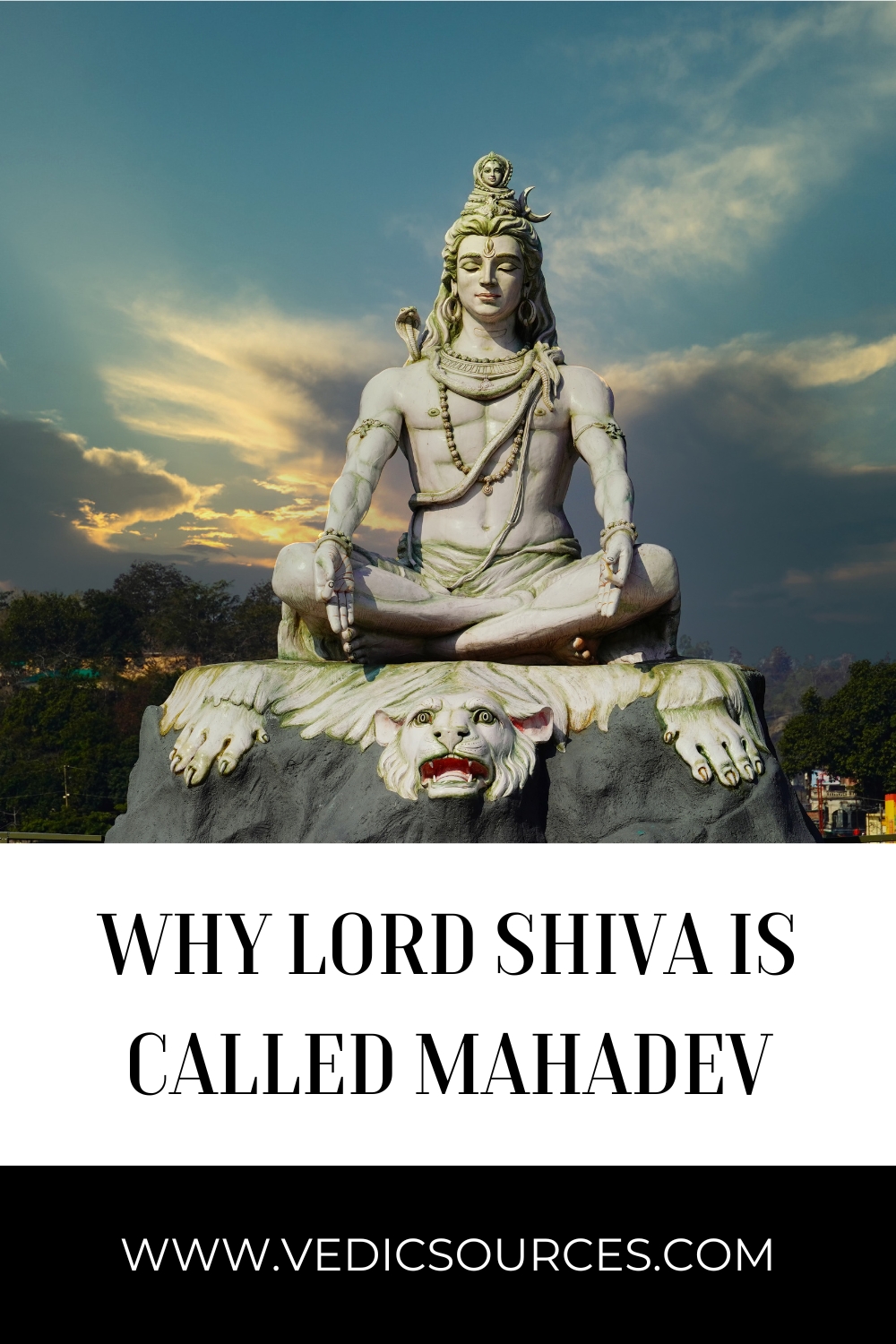Lord Shiva, is one of the principal deities in Hinduism. Often earns the reference to “Mahadev,” which translates to “Great God” or “Supreme God.” This divine epithet holds profound significance and encompasses various facets of Lord Shiva’s omnipotent and benevolent nature. In this post, we will explore the reasons and underlying meanings behind why Lord Shiva is called Mahadev. Shedding light on the symbolic, mythological, and philosophical aspects of this revered title.
Mahadev: The Confluence of Divine Attributes
When examining the essence of the title “Mahadev,” it becomes evident that it reflects the convergence of several divine attributes associated with Lord Shiva. As the supreme deity of destruction and transformation. He embodies immense power and authority. Lord Shiva is also revered as the ultimate yogi, symbolizing meditation, asceticism, and self-realization. Thus, the title Mahadev harmoniously amalgamates these essential aspects of his divinity. Portraying him as the “Great God” who holds dominion over the cosmic order.
Why Shravan Month is Celebrated for Lord Shiva
Mythological Significance of the Title:
The mythology surrounding Lord Shiva provides deeper insights into why he is called Mahadev. According to Hindu scriptures, the Trimurti concept represents the three major aspects of the divine: Brahma, the creator; Vishnu, the preserver; and Shiva, the destroyer. While all three are vital for the cyclic process of creation, sustenance, and dissolution. Lord Shiva’s role as the destroyer is essential for the renewal and rebirth of the universe. Thus, he earns the title Mahadev for his crucial role in maintaining cosmic equilibrium.
The Symbolism of Destruction and Creation:
In Hindu cosmology, destruction is considered a transformative process rather than an absolute end. Lord Shiva’s dance of destruction, known as the Tandava, symbolizes the cyclical nature of existence. Where old forms make way for new beginnings. As Mahadev, he possesses the power to dissolve the universe when the time comes and create a new cosmos from its ashes. This aspect of destruction aligns with the concept of impermanence. Urging devotees to embrace change and let go of attachments to find spiritual liberation.
Why Nandi is Outside Shiva Temple
Philosophical Interpretation:
The title Mahadev holds profound philosophical significance, highlighting Lord Shiva’s transcendental nature and his role as the ultimate reality beyond the material realm. In Hindu philosophy, Lord Shiva represents the formless, eternal, and all-pervading consciousness that underlies the universe. The appellation “Mahadev” thus emphasizes his supreme position in the pantheon of gods, embodying the highest truth and wisdom.
Mahadev: The Compassionate Protector
Beyond his role as the “Great God” in the cosmic sense, devotees revere Lord Shiva as a compassionate protector and benefactor. In Hindu mythology, he often appears as the harbinger of auspiciousness and the remover of obstacles. Devotees believe that seeking his blessings can alleviate suffering, grant wisdom, and bestow divine grace. The title “Mahadev” thus emphasizes his benevolent nature and his willingness to guide and support his devotees on their spiritual journey.
Why Shiva Has Moon on His Head
The Unification of Masculine and Feminine Energies
Another profound aspect of why Lord Shiva is called Mahadev lies in his representation of unifying masculine and feminine energies. He is often depicted as Ardhanarishvara, a composite form of both Shiva and his consort Parvati, symbolizing the inseparable union of male and female principles. As Mahadev, he embodies the concept of “Ardha Nareshwara,” highlighting the equal importance of both genders and promoting harmony and balance between them.
Mahadev in Shaivism and Beyond
The title Mahadev holds a significant place in the Shaivite tradition, one of the major sects within Hinduism dedicated to Lord Shiva’s worship. Shaivites revere Lord Shiva as the Supreme Being, beyond all dualities and limitations. Devotees see him as the source of creation and the ultimate destination of all souls. Additionally, the concept of Mahadev has transcended the boundaries of Hinduism and has found resonance in various other spiritual practices and belief systems worldwide.
Festivals Celebrating Mahadev
Throughout the Indian subcontinent, numerous festivals celebrate the glory of Lord Shiva as Mahadev. Maha Shivaratri, one of the most prominent festivals, celebrates the night of Lord Shiva’s cosmic dance and observes fasting, prayer, and meditation. During this sacred occasion, devotees immerse themselves in devotion and seek his blessings for spiritual growth and enlightenment.
Conclusion:
In conclusion, Lord Shiva’s title of Mahadev encapsulates a plethora of meanings and symbolism that enrich our understanding of this powerful deity. As the “Great God,” he embodies the harmonious coalescence of destruction and creation, symbolizing the cyclical nature of existence. The mythological and philosophical aspects of this title highlight his role in maintaining cosmic balance and illuminating the path to spiritual liberation. Devotees venerate Mahadev for his unwavering compassion and guidance in navigating the eternal cycle of life and death, seeking solace and ultimate truth in his divine grace.

If you liked this post, check out some of our related posts too!
Enigmatic Hue: Why is Krishna Blue?















